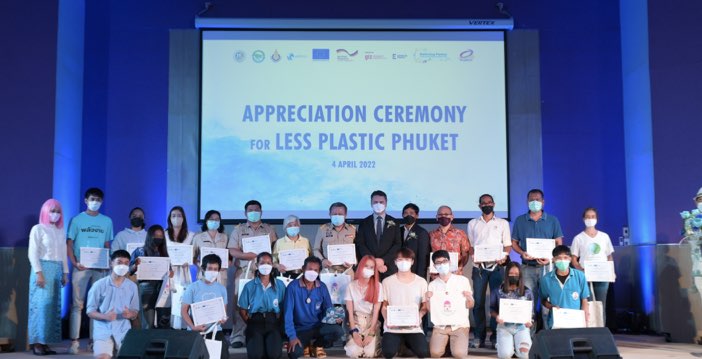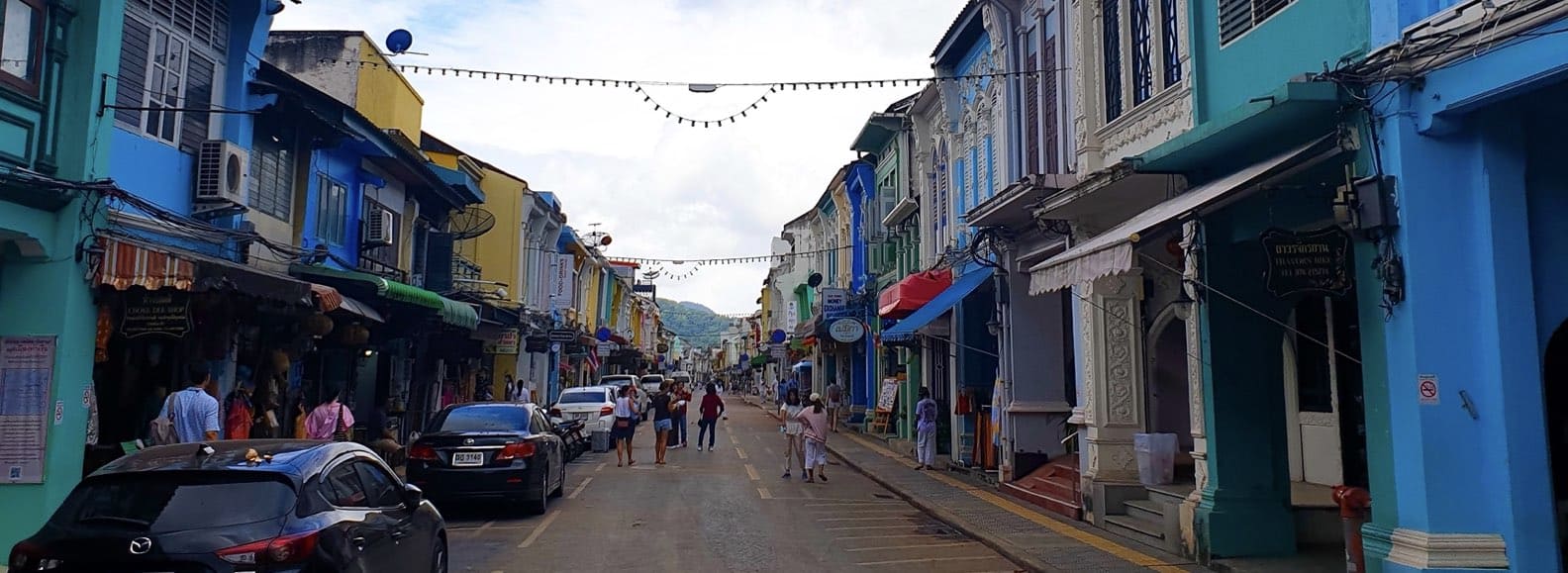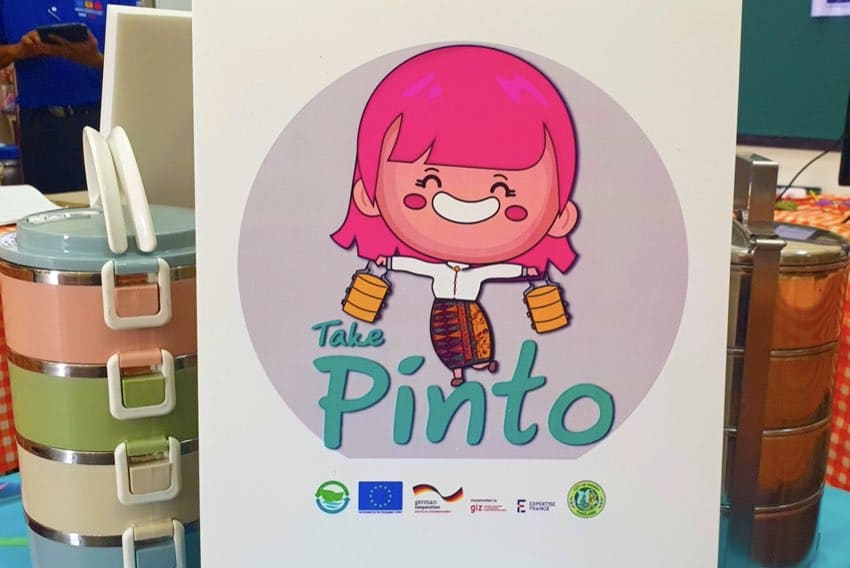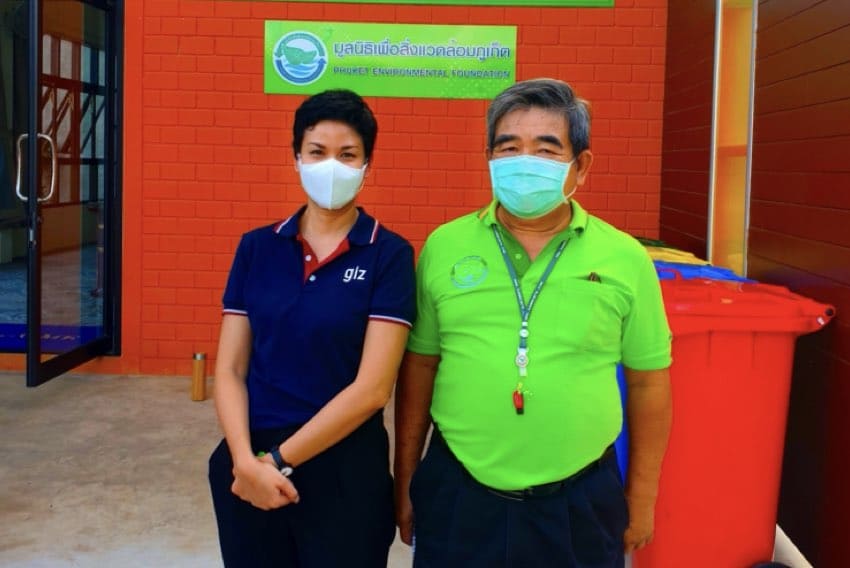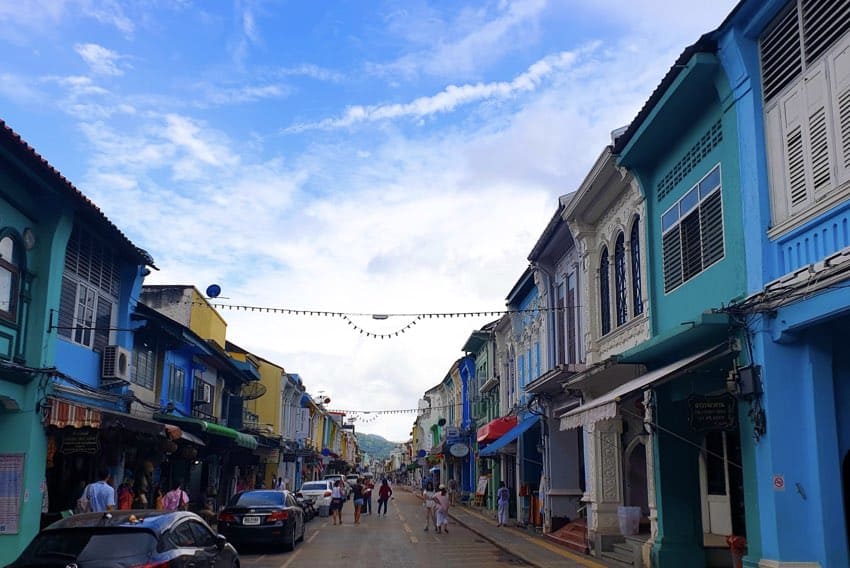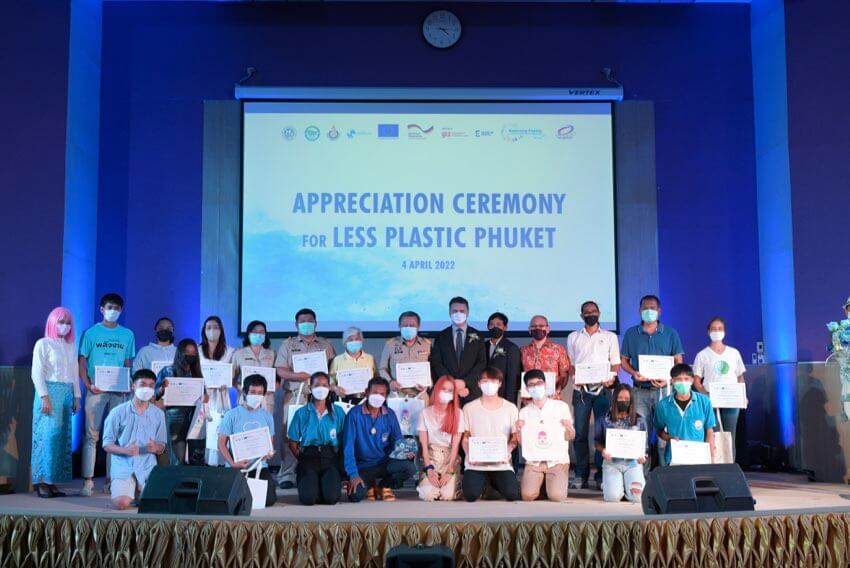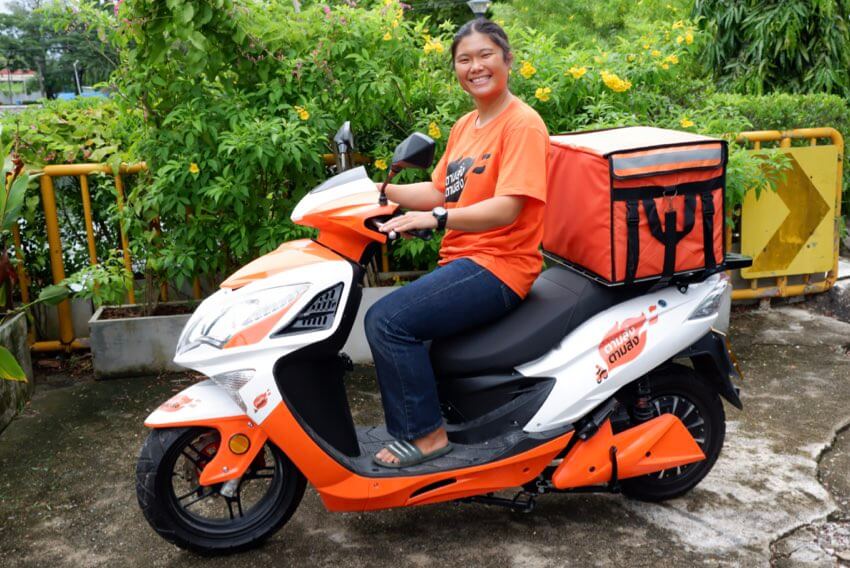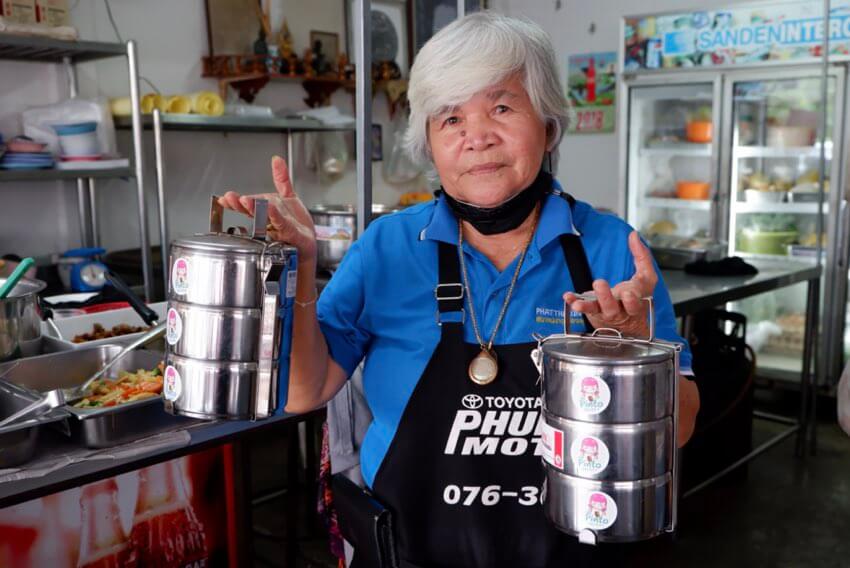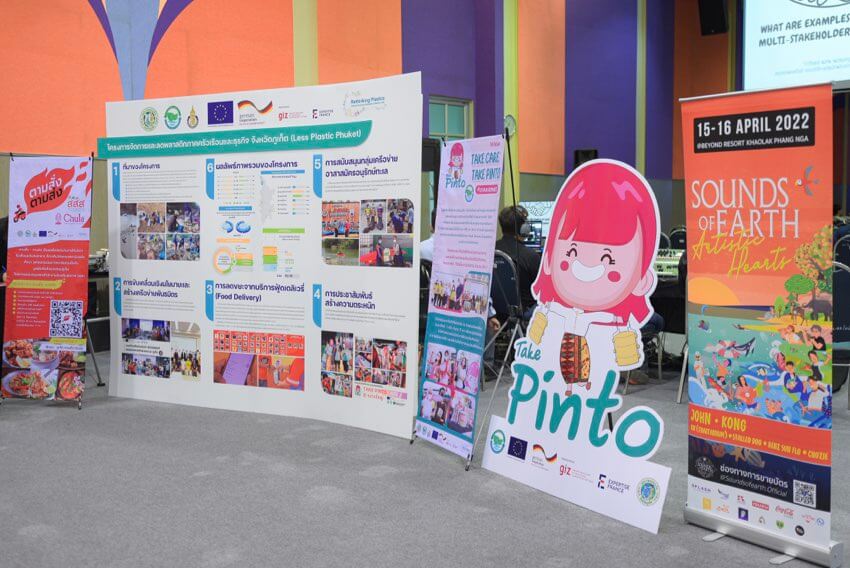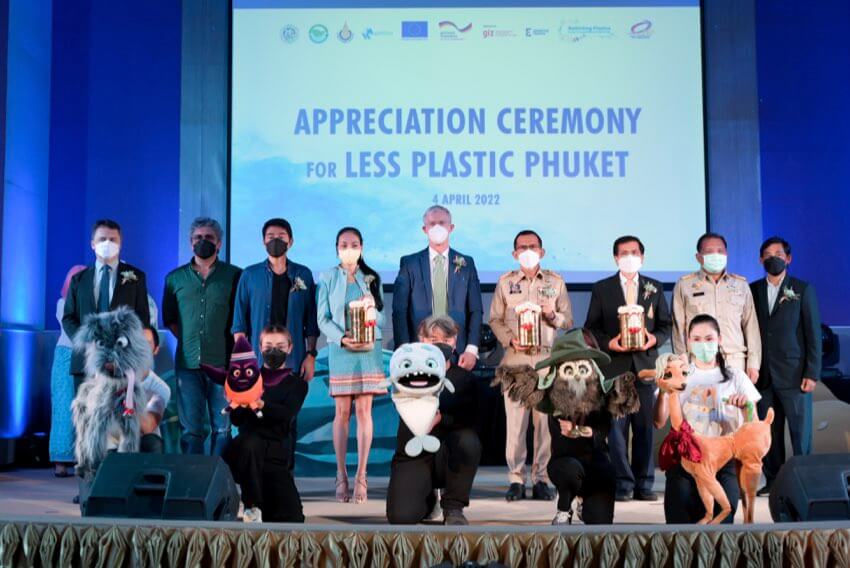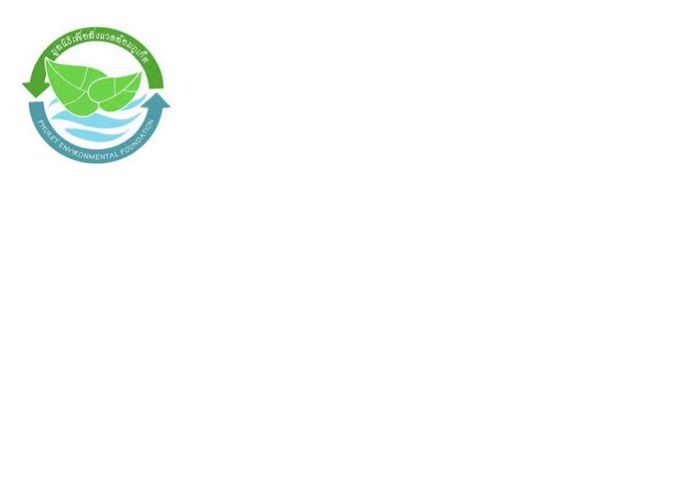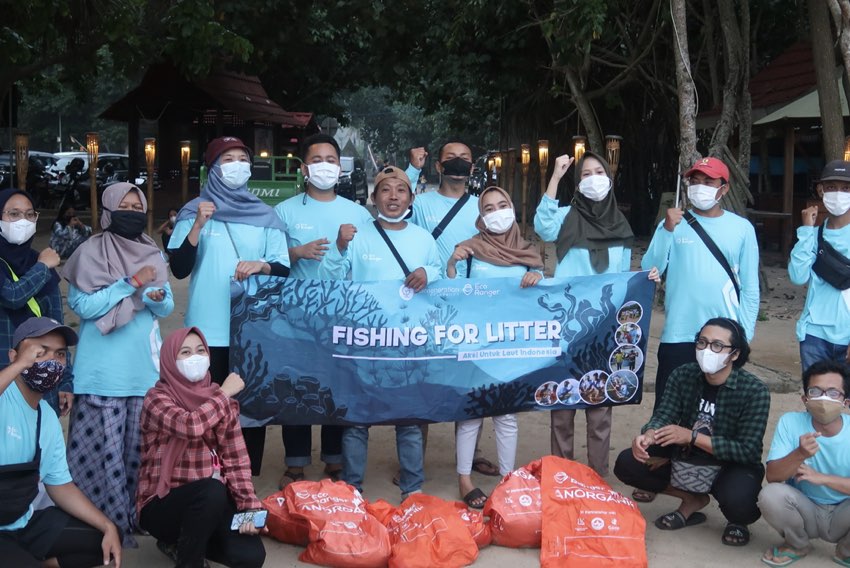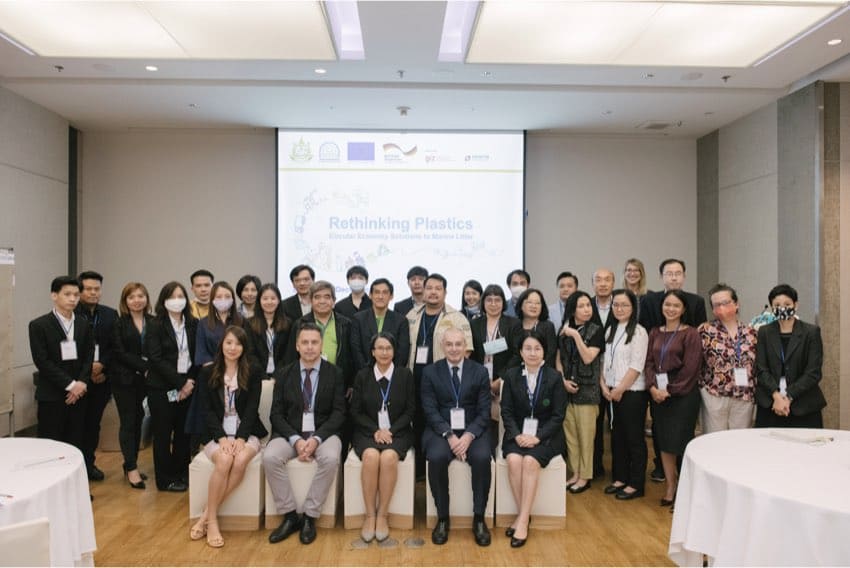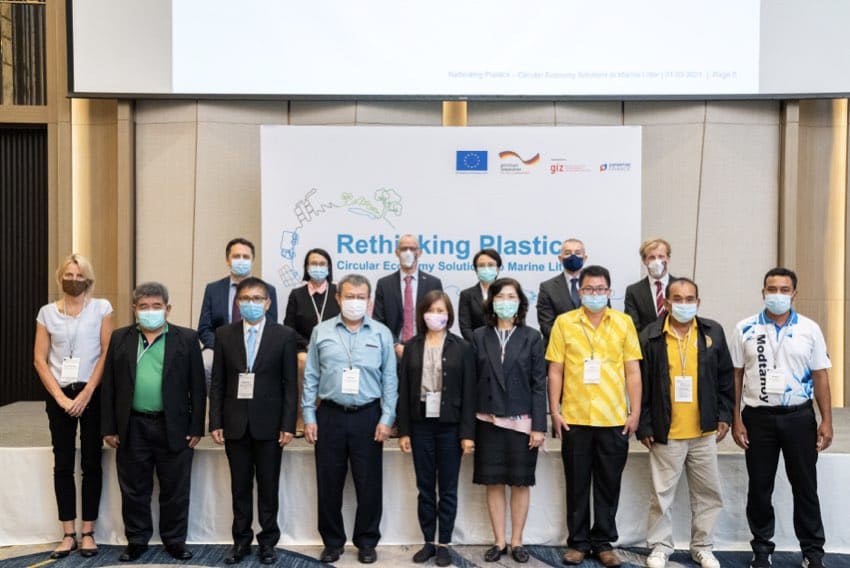Less Plastics in Phuket
“Before the COVID-19 pandemic, Phuket had many visitors every year. And with rising tourist numbers, plastic waste steadily increased,” says Phuket’s Deputy Governor Amnuay Pinsuwan.
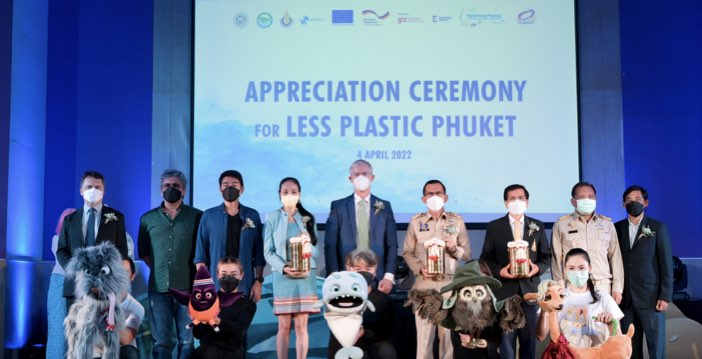
Single-use plastics, such as straws and thin plastic bags, often ended up in the sea. There, they would break down into microplastic particles, causing harm to the marine environment and to people. “We needed to quickly find solutions and raise awareness of the problem across the public and private sectors, as well as in civil society,” recalls Pinsuwan. In 2020, the Rethinking Plastics project launched with the aim of reducing and managing plastic waste in businesses and households in Phuket. Through the project, restaurants started to use more natural and sustainable materials for food delivery instead of plastic. This increased awareness among the public, who also began to change their behaviour.
“The pilot project helped improve waste management by promoting cooperation among all partners,” says Pinsuwan. “Working together, we made significant strides towards the ultimate goal of a clean and sustainable city and island.”
WHAT HAVE WE ACHIEVED IN 18 MONTHS?
1. Building alliances
Education was the first step in all our activities. Through trainings, awareness-raising campaigns and workshops, we spoke to more than 650 people about how and why to collectively manage plastic waste generated in households, communities and businesses. We also brought together 30 key organisations in Phuket, including local government agencies, private sector firms and public sector organisations. Together, they developed the Less Plastic Phuket Declaration, committing to nine policy measures, such as establishing environmentally friendly product guidelines and procurement regulations, educating children and young people in schools about waste management and providing guidelines for entrepreneurs and maritime transport operators to prevent the dumping of waste into the sea. Local governments agreed to support entrepreneurs in promoting the use of environmentally friendly products instead of single-use plastic and providing food packaging at a lower price.
2. Restaurants and guests go back to their roots
Through our pilot project, we promoted the use of “Pintos” for food deliveries. These are stackable boxes that were used in Thailand for centuries before single-use plastic packaging took over. Modern Pintos are made of stainless steel and their different layers can be used to transport all types of food – from rice and soup to sauce and desserts. Pintos keep the food warm and are easy to clean. Restaurants that use Pintos or other reusable or eco-friendly packaging alternatives for takeaways can be found on the app Tam Sang-Tam Song. The app was first developed by Chulalongkorn University using a non-profit approach, and it was adapted to plastic-free food deliveries for our project. It is the first app in Phuket to support plastic waste reduction in local food deliveries. Currently, customers can order meals without single-use plastic packaging from 60 restaurants. To make sure the public knew about the service and our efforts in reducing plastic waste, we carried out information campaigns at Lad Yai – Phuket’s famous Walking Street Market – and at a Sustainability Fair. We also organised “Less Plastics” workshops for students and businesses. By bringing together restaurants and customers, so far we have avoided using more than 15,000 single-use plastic containers, replacing them with Pintos, eco-friendly packaging and reusable containers.
3. Joining forces at the beach
Phuket’s incredible beaches are tourist magnets. They offer considerable potential for strengthening the local economy on the island. But when they are littered with waste, they are a hazard for everyone. Trash can easily enter the sea, where it becomes a problem for the marine environment and sea life. To combat this, we organised eight beach clean-ups involving over 500 volunteers who collected more than 3,000 kilograms of waste in just five months. The garbage was sent to recycling centres and other disposal sites. Together with the Marine and Coastal Resources Office, we also created a database to record the amount and types of waste collected and help guide future actions.
WHAT HAVE WE LEARNED FROM OUR PROJECT?
- Educating people about plastic waste management is the most important step in project implementation.
- Good public relations and networks are keys to success, for example setting a new trend for using Pintos in order to reduce plastic waste and promoting the Tam Sang-Tam Song app and highlighting its contribution to environmental sustainability.
- Close coordination and cooperation with restaurants is key to getting insights on prices, usability and incentives. This can strengthen processes and reduce packaging in delivery and takeaways.
- Restaurants need incentives or financial support from local governments to ensure that they use more environmentally friendly packaging. Otherwise, small restaurants in particular might prioritise profits over the environment.
- The system needs finetuning, such as by adding identification numbers to Pinto boxes. This will allow for tracking and data management and minimise the risk of lost or stolen boxes.
- Methods for collecting feedback should take into account user convenience (e.g. providing feedback over the phone rather than online).
- It is more effective to focus on a specific target group first and then expand out to other groups, instead of working with large groups of people from the beginning.
- Involve community members in order to understand the target area and its problems before adapting policies and measures on preventing marine litter. Publicise beach clean-ups to get support from government agencies, volunteer groups and the public. Increase local ownership, for example by involving communities in making signs about reducing waste.
Implemented by: Phuket Environmental Foundation
